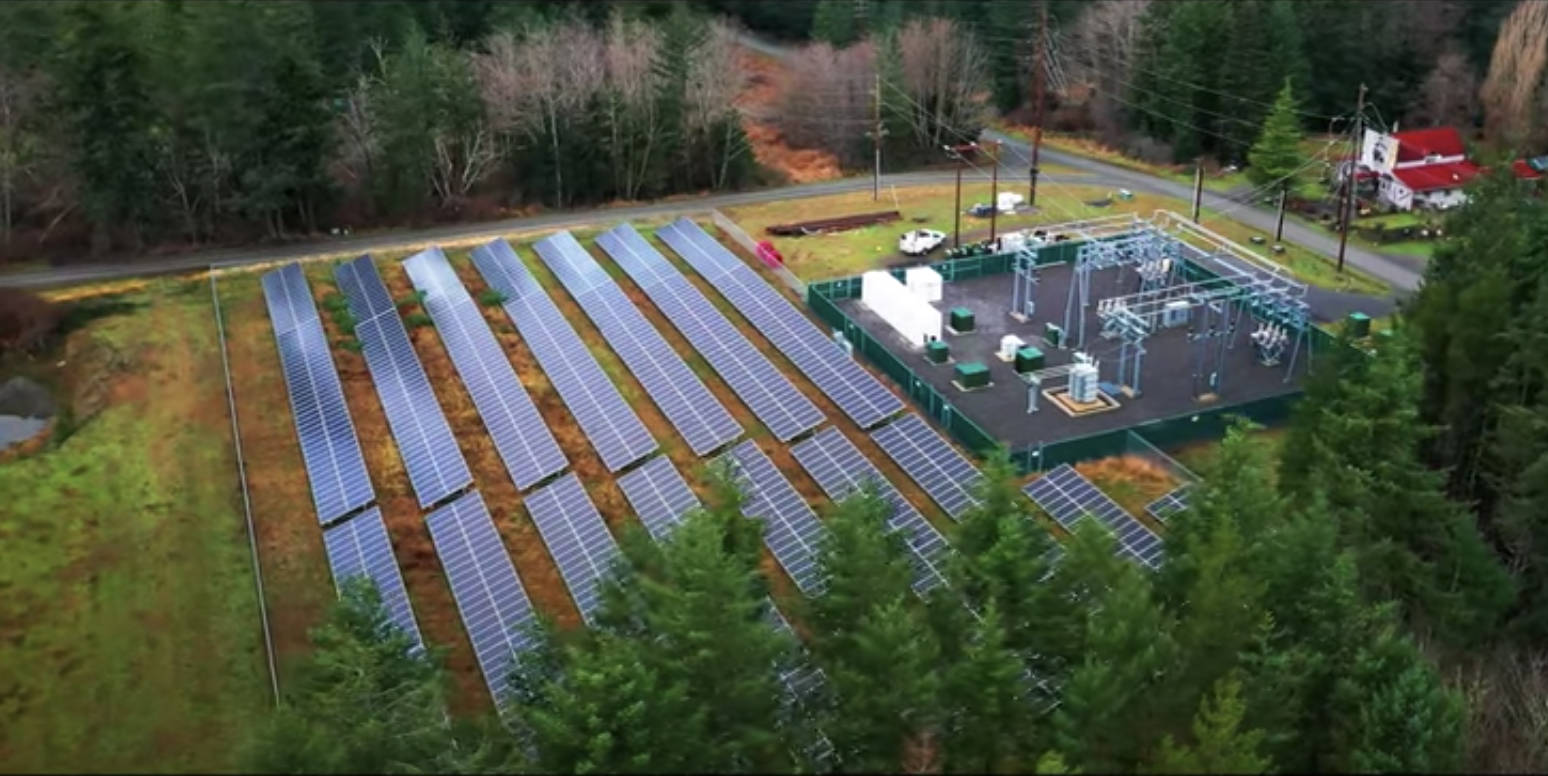Submitted by OPALCO.
The first local renewable microgrid is complete on Decatur Island. What’s a microgrid? In this case, a relatively small solar array coupled with one megawatt of battery storage. OPALCO will give a tour of the microgrid and host a panel discussion about the project at noon on Wednesday, Feb. 24 via Zoom.
The Decatur project is the first of many microgrids planned that will start to give the islands a small local power supply to help us get through mainland system outages – which will become more frequent as the region shifts away from carbon, as mandated by the Clean Energy Transformation Act. This project has the potential to power about 500 homes for about four hours (based on average usage). OPALCO plans to build community solar + energy storage microgrid projects near each village center – where essential services are located – and, eventually, enough battery power to support electric ferry charging as the WSF fleet is replaced with hybrid-electric ferries.
Members who subscribed to the Community Solar project covered 100% of that project cost and the Washington Department of Commerce provided a $1 million Clean Energy Fund 2 grant for the battery project through the CEF Grid Modernization program.
“Investing in electric grid resilience is essential for every community to share in the full potential of Washington’s clean energy future,” Washington State Commerce Director Lisa Brown said. “The OPALCO project is a very successful example of how we can use the state Clean Energy Fund to partner with smaller utilities to strengthen rural communities and help them meet their unique needs and goals.”
To join the meeting, please send an email to communications@opalco.com for the Zoom link and agenda (or check Facebook @orcaspower). The event includes a panel discussion with Bob Kirchmeier, Senior Grid Modernization Engineer with the Washington Department of Commerce and OPALCO Engineers Russell Guerry and Robert Smallwood. There will be a Q&A session.
“We’ll always be tied to the mainland to power our lives in San Juan County,” said General Manager Foster Hildreth, “But this microgrid is an important first step in our bigger plan to provide some local power during emergencies to keep essential services up and running for the health and safety of our island communities.”



